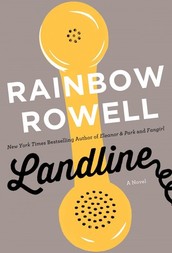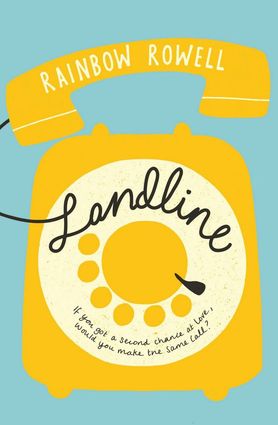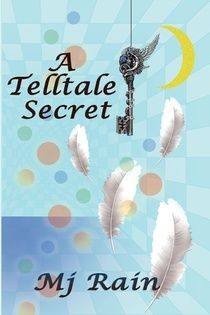 Click for Source Image
Click for Source Image To say that Landline is not one of Rainbow Rowell’s best books is in no way an insult, but rather a compliment to her incredibly readable and fun novels. Unlike her most popular books, Eleanor and Park and Fangirl, Landline is a novel aimed at adults, centering on a married couple in crisis, but with an added fantastical twist. Characters are well-realised, as is the unique plot device at the centre of the book. In fact, the only reason why Landline doesn’t rate among Rowell’s best is simply because, while this is great, other books of hers are greater.
 Click for Source Image
Click for Source Image Two days before they’re supposed to visit Neal’s family in Omaha for Christmas, Georgie tells Neal that she can’t go. She’s a TV writer, and something’s come up on her show; she has to stay in Los Angeles. She knows that Neal will be upset with her - Neal is always a little upset with Georgie - but she doesn’t expect him to pack up the kids and go home without her.
That night, Georgie discovers a way to communicate with Neal in the past. It’s not time travel, not exactly, but she feels like she’s been given an opportunity to fix her marriage before it starts. Is that what she’s supposed to do? Or would Georgie and Neal be better off if their marriage never happened?
The character of Georgie McCool (and yes, her name is commented on in the story) is a well-rounded, complex and multi-layered person. She is a mother struggling with spending Christmas away from her daughters, a wife full of love for her husband, and a comedy writer making her name for herself in an industry dominated by men. It is reconciling these parts of herself that drives the initial conflict. Georgie’s dedication to furthering her career comes at the expense of her marriage, but regardless of which choices she makes throughout the narrative, Rowell does not demonise her for making one choice over another. There is no ideal of a woman to which Georgie ultimately subscribes, rather a realistic and relatable depiction of what it is like to be a woman in the 21st century.
Georgie’s husband, Neal, has a far more unique development throughout the novel. Initially, he appears to be a one-note frustrated husband complaining about Georgie putting work above her family, but we come to understand his perspective and his character as the story progresses. Only we don’t know the Neal that takes Georgie’s children away at Christmas, rather the young Neal from the early days of their relationship through the landline that connects Georgie to the past. What the present Georgie and the past Neal say to each other in these conversations has a direct impact on the person Neal has become, so that ultimately readers are sympathetic to his motivations.
The magical yellow landline phone that gives the book its title is an intriguing and effective plot device, and Rowell is careful to avoid but also explain any paradox that may arise from Georgie reaching into her past. Georgie slips up occasionally in her phone calls, having to think quickly to cover her tracks, but the story is so tightly plotted that the resolution is not drastically changed by the meddling in time and space. There is no Marty McFly being erased from existence to worry about here, because the circumstances and consequences of these phone calls are far more personal to subscribe to more science-fiction conventions. Georgie ensuring that speaking to the past doesn’t change her future is a concern, sure, but it is mostly a tale of Georgie’s self-discovery, using her conversations to the young Neal as a method of healing, and as a way of discovering what truly is the most important thing to her life at that very moment. And as has already been said, Rowell does not imply one “correct” resolution to Georgie’s story, only one that makes Georgie feel at peace.





 RSS Feed
RSS Feed
